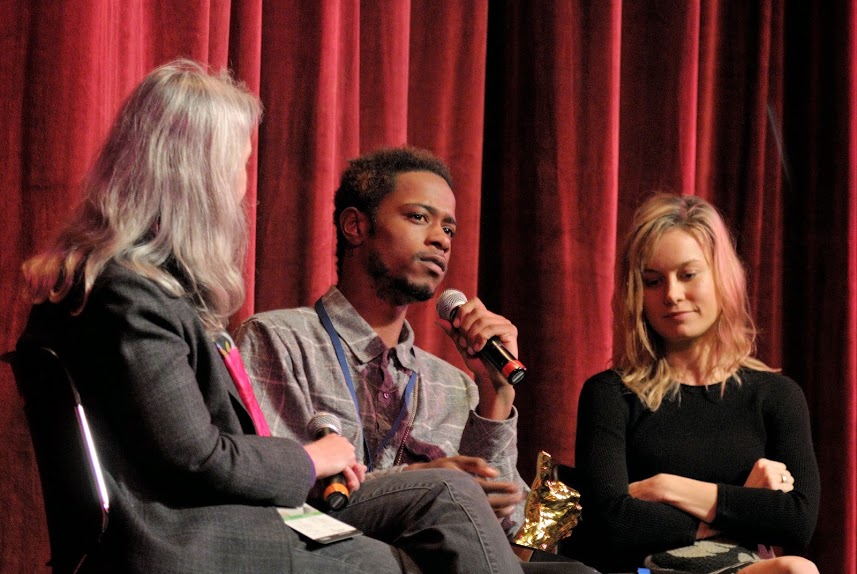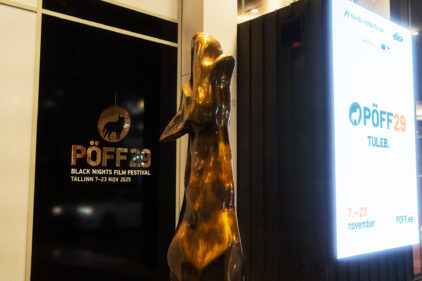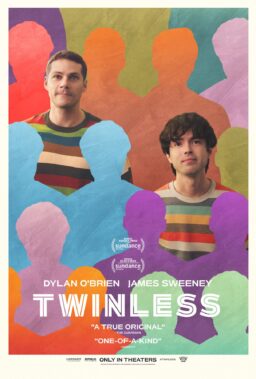Imagine
preparing to jump into adulthood without the safety net of a family.
The reasons may vary: Parents who can’t master maturity, parents who
can’t handle the mental problems of their children, parents who have
mental issues of their own, parents whose sense of responsibility has
been riddled by acidic actions of addiction. For whatever reason, these
children end up in foster care. The 2013 movie “Short Term 12” which
was screened on Thursday, April 24, at 4 p.m.—the
second day of Ebertfest—is a sensitive portrayal of children in a
residential foster care home and the barely older young adults who are
their in-home caretakers.
“Short
Term 12” is the name of one such facility and the name suggests a
measure of insecurity. This isn’t a long-term solution. The kids may try
to run away and even succeed since the rules are that once off the
grounds of the facility, the in-house caretakers can’t physically force
them to return. Even if they don’t physically run, these kids will age
out and be sent out into the world without the safety net of a family.
Writer and director Destin Daniel Cretton worked in one such foster
care facility, so he knows something about the topic. There are no easy
answers and we are set up to expect the worst: a funny story has a
tragic ending.
In
the beginning, the central character Grace (a luminous Brie Larson)
seems to have it all together. She advises a new employee that the kids
stay there “typically less than a year and as long as three.” The
in-house caretakers are “here to create a safe environment” but they are
not the parents and not the therapist. They also have to let go and
hope for the best when the kids like Marcus (Keith Stanfield) age out.
Personal
circumstances and a new resident pushes Grace to the edge, forcing her
to face her own past or else lose the loving relationship she has with
her live-in boyfriend and co-worker Mason (John Gallagher).
Some Ebertfest attendees had already been prepared for careful consideration of the issues by a Thursday
morning panel discussion on “Challenging Stigma Through the Arts,” in which
health care and mental health issues were discussed. The movie itself
doesn’t clearly state the back story of the characters, but some of the
foster kids require regular medication and more than one character has
been cutting herself. Brie Larson participated on the panel, and she and
Keith Stanfield were at Ebertfest for the Q&A following the
screening.
During
the Q&A, Larson explained that in the three weeks she had to
prepare for the part, she shadowed real caretakers and she noted, “They
have a lot of authority but they have very little authority. It’s a
strange dichotomy.” One of the things that informed her portrayal was a
woman she shadowed that had been doing that job for 27 years and told her you
have to learn to “let go.”
Cretton
got some help from experienced rapper Stanfield for the lyrics used in
the rapping sequence that reveals the angst of his character. The Los
Angeles-based Stanfield raps with a group called Moors. Stanfield
re-wrote Cretton’s original rap dialogue, but Cretton felt Stanfield’s
version was too extreme. The one eventually used was halfway in between.
Stanfield vividly recalled that the camera was up in his face filming
that scene and he definitely had to focus on the tragedy of his
character, hunched over and eyes blank as if seeing some painful
memories from his past.
In
another key scene, Stanfield has his hair cut off, which Chaz Ebert
noted was especially significant for the African American community. For
African Americans, hair can be a social and a political issue often
tied to self-identity. Stanfield felt that his character was “cutting
off his fears and facing them head on” by having Grace shave his hair
off.
Of
the movie, Larson commented that “We all have the shadow side, the dark
side.” Yet by “accepting that pain, using that weakness as a strength,
then it becomes love, it becomes safety, it becomes a community and a
way to progress.” The movie did have therapeutic moments for Larson.
During one scene she gets to take a baseball bat to a car. She had been
working 12 hours a day for 20 days on the movie and she confessed, “I
was only supposed to hit it three times. I was only supposed to crack it
[the windshield].” For some reason, she became obsessed with breaking
through the front windshield and she laughed and said of the experience,
“It was the best thing ever.” Car crunching as therapy. If it becomes a
trend, you’ll know who started it.
“Short
Term 12” won the Audience Award for Best Film at the Athens
International Film Festival and the Austin Film Critics Award for Best
Film and Brie Larson won the Austin Film Critics Award for Best Actress
and for the Breakthrough Artist.












